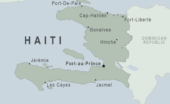Re Ian Bremmer 'Could third-party candidates upend the 2024 US election?' 3 April The current political movement in the USA…
Wednesday Night #1560
Written by Diana Thebaud Nicholson // January 25, 2012 // Wednesday Nights // Comments Off on Wednesday Night #1560
PROLOGUE
The world has and continues to spin fast and furiously.
As we contemplate the vortex, we would like to draw to your attention a recent article in The Gazette, Decisions: We’re maxed out say Montreal researchers, about the exercise of will power and its influence on decision-making.
“A growing number of studies are showing that making too many decisions or having too much choice can leave people weary, mentally taxed, and vulnerable to outbursts and bad decisions that they might regret. In a new book, Willpower: Rediscovering the Greatest Human Strength, authors John Tierney and Roy Baumeister argue that willpower is a limited resource and that when we overdraw from this finite bank of mental energy, typically levelheaded people lose their self-control and start to make bad decisions.” – including serious cases of foot-in-mouth disease.
Making the point, the Financial Times today underlines that the Rush to reform Myanmar creates ‘Burma burn-out’
It appears to be a prevailing problem amongst decision makers of all varieties as borne out by, among other news items, the situation at RIM – CBC’s The Current had a good analysis of the problems – “Some investors clearly thought the RIM shuffle was all-thumbs. Theresa Tedesco, Chief Business Correspondent with the National Post and Joe Castaldo, Senior Writer with Canadian Business Magazine, have trenchant comments.
We might add any number of the follies of the Republican candidates for the Presidency, however are not sure where to start. But keep watching the primaries – Florida is next (Florida’s GOP debate: Old issues redefined by local interests) and several Wednesday Nighters will be following the primary at first-hand. We await their comments.
Any bets we’ll see an Open Marriage for Mitt and Newt, who can then file joint tax returns?
The most serious underlying problem is of course the Super PACs. We would be interested to hear your views on Andrew Coyne’s A less comedic balance in the political marketplace
“It’s the U.S. campaign finance laws … that have become the biggest joke. Whatever restrictions the candidates and parties are under as to how they raise and spend funds, the Super PACs can raise funds in any amount from virtually any source and spend it in any way they see fit, to exactly the same purpose.” We confess that we do not quite follow his suggestions for Canada. Meantime, we would continue to cheer for Stephen Colbert had it not been announced that he ended His Exploratory Committee For President of the United States of South Carolina
Tonight we will take a break from the Republicans and watch the State of the Union Address. We remind you that Democrats Abroad invites all to join in watching at Hurley’s Irish Pub, 1225 Crescent St. “We will gather at 8:00 p.m. for a discussion of the political season and then watch the speech on a big screen at 9:00 p.m.”
Adding to our list of bad decisions are the various pronouncements of the current Masters of the Universe – that universe being the Tar Sands. What has possessed Joe Oliver to attack billionaire (foreign) eco-terrorists? Unless, of course, he simply felt Rick Mercer was lacking material. The Minister has been much quieter since it was noted that XL Pipeline Opposition Funding: U.S. Groups That Funded Environmentalists Also Gave To Canadian Government
And why has Stephen Harper decided to ignore Quebec, thus arousing the ire of Peter White, who, as the saying goes, does not keep sa langue dans sa poche. For those who missed it, there’s a good interview with Peter on Daybreak today.
We await with anticipation the pronouncements following the meeting with the First Nations and hope that Mr. Harper will make his exit to Davos without appearing dismissive of the very serious issues to be resolved.
Ah, yes, Davos. The theme is The Great Transformation: Shaping New Models, and while it would be entertaining to anticipate fascinating examples of decisions made under duress, given the iron will power of – and control traditionally exerted by – Klaus Schwab, we anticipate no exciting deviations from the agenda as he has laid it out Some introductory ideas by Professor Klaus Schwab on the theme of the Annual Meeting 2012.
Another baffling decision, obviously made under too much stress, is that of the Arab League request for UN training for the monitors only after the mission had been there for a month. Now, having requested the training, the Arab League is folding the whole mission and dropping the problem back in the lap of the UN, which raises the question of invoking R2P. Will that work after the Libya experience (How Libya’s Success Became Syria’s Failure)? Kyle Matthews, who attended the forum marking the 10th anniversary for R2P, will likely have thoughts.
Two stories on aid and development for your consideration. The HuffPost the work of the U.S. Overseas Private Investment Corporation Development That Works: OPIC Earns Money for the Treasury While Funding Development Throughout the World. “OPIC builds upon a known commodity — our entrepreneurial spirit — and puts it at the center of our outreach to the developing world.” Guy Stanley points out that “The Scandinavians–especially Denmark and Norway in my experience–put a lot of expertise into helping countries in this way, and linking the projects directly to development needs. So too the Brits after the reform of ODA by Blair’s dissident minister of development. Canada’s IDRC also played a critical role in this area, as do UN multilateral agencies, especially UNDP and UNCTAD…Some of this aid is directed to promoting entrepreneurship.” He adds … Unfortunately, development is a complex subject for which there is no universal formula but in which intelligent policies directed to solving specific problems can make a huge difference (See Sachs or Rodrik for examples).”
Meanwhile the Ottawa Citizen concludes that CIDA ought to go:
“The problems at the Canadian International Development Agency are so serious and numerous that getting rid of the agency, and replacing it with something nimbler, might be the only solution.
To be fair to CIDA, many of its problems apply to the entire field of international development. Some aid gets funnelled through governments that are incompetent or evil or both. There are too many national aid agencies meddling in too many projects, serving too many shifting political and development goals.”



